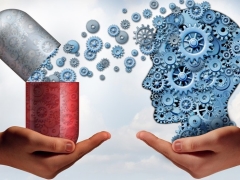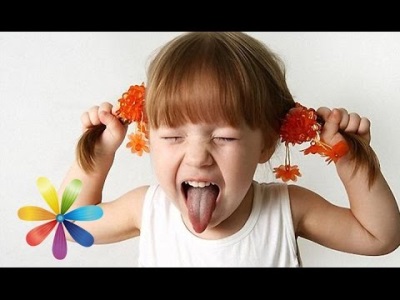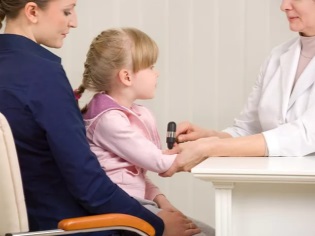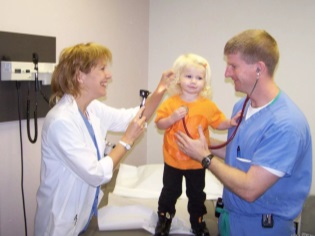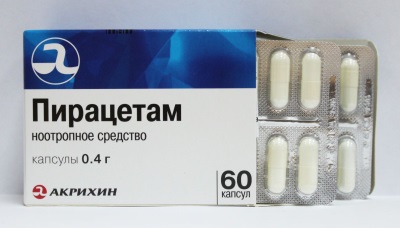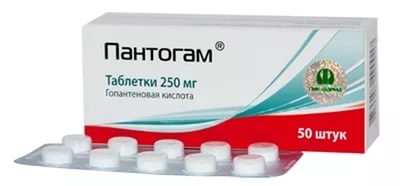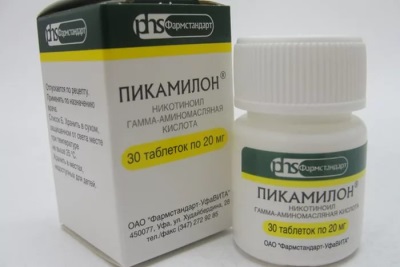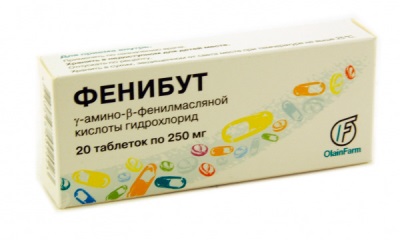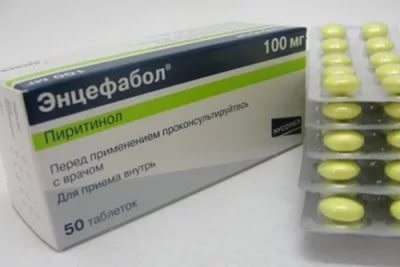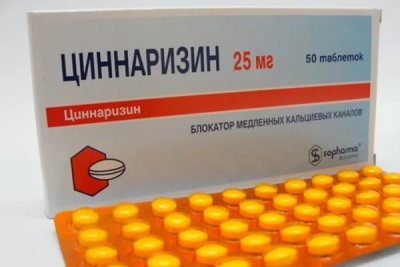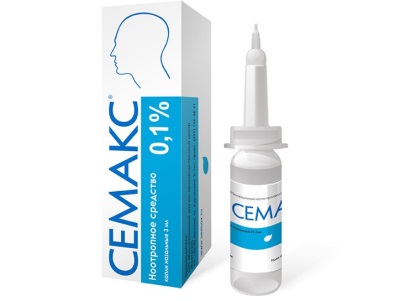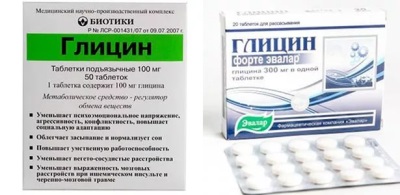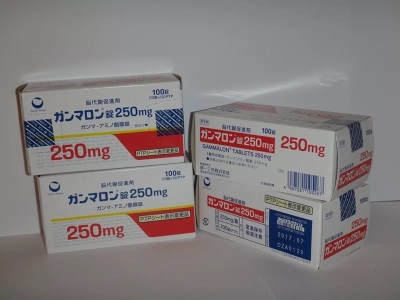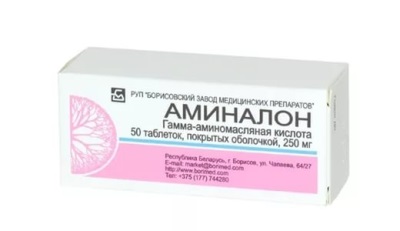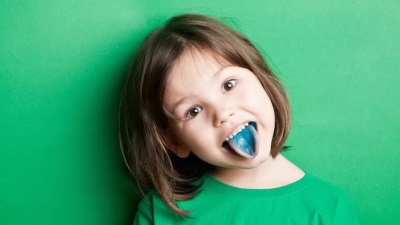Nootropics for children
The nervous system of a person recently born is still immature. It will be improved over the years. It is not surprising that caring parents gaze intently at their crumbs - and does he have any deviations?
The baby is restless before bedtime? Sometimes the chin trembles, the arms and legs are twitching, the baby plentifully and often spits, lags behind the peers in development Do karapuz delay speech development or he does not want to sit down and walk in the average time? All of these symptoms can be a sign of both the immaturity of the nervous system that is natural for crumbs and a serious disease.
When a question arises, as it is called, an edge, parents and pediatricians have no time to wait to see if the warning symptoms will pass with time.
After all, the older the child, the more difficult it is to correct the abnormalities caused by neurological pathologies. In this situation, children are prescribed nootropic drugs. You should not be afraid - according to statistics, they are discharged every third baby.
What it is?
Nootropics are neurometabolic stimulants. Simply put, drugs that are active in the higher mental functions of the brain, improve blood circulation and the nervous system, stimulate metabolic processes in the nerve tissues. In the international classification, nootropic drugs do not have a separate group, they are combined with psychostimulants. But it is also not a reason for unrest.
Act
Nootropic action is based on several processes. They improve the energy state of nerve cells (neurons), accelerate the processes occurring in the central nervous system, saturate the brain with oxygen, strengthen the membranes of nerve cells, increase the speed of impulses in the brain. As a result, the metabolic processes in the brain are significantly improved, the memory “grows stronger”, the perception “revives”. Positively nootropics act on the mechanisms of thinking, increase intellectual abilities. It is for this that nootropics received their second unofficial name - “stimulants of cognition”.
Nootropic drugs come in various classifications, in total there are more than 20 types of them. These are more than a hundred titles.
Indications for use
Nootropic drugs for children are prescribed for the following diseases and conditions:
- The lag in the development of the psyche of the child,
- Delayed speech development
- Consequences of prenatal suffering of the baby, during which the central nervous system was affected,
- Head injuries (concussion, head injury),
- Attention Deficit Disorder
- Various forms of mental retardation,
- Cerebral palsy (Cerebral palsy),
In addition, certain types of nootropic drugs are likely to prescribe with a strong stutter, sleep disorders in children, urination disorders, migraines, severe dizziness. Nootropics are used to treat hyperkinesis (these are chaotic, convulsive, accidental movements of the arms and legs in children), as well as for the prevention of motion sickness. In addition, nootropic drugs for the treatment of children are used in ophthalmology, toxicology, traumatology.
Pros and cons
Despite its rather positive impact on the body, disputes and scientific discussions around nootropics do not subside. These drugs are widely used only in Russia and the countries of the former CIS.Probably because they began to be used in our medicine in the middle of the XX century. European and American doctors, for example, refuse to prescribe nootropics to their young patients.
The reason is that the effectiveness and benefits of nootropic drugs have not been scientifically proven so far. Although everyone agrees that there is no particular harm from them either. And what's the point of treating with all and all nootropics, if it is, of course, not talking about the list of diseases mentioned above? This opinion, in particular, is shared by famous doctors Roshal and Komarovsky. Some experts even suggest transferring nootropic drugs from the category of drugs to the category of dietary supplements.
The author of the following video will tell you how nootropic drugs affect the brain.
What drugs can a doctor prescribe?
- The main and the very first nootrop in history, the “founding father” of all the other drugs of this family, is Piracetam. To most Russians and residents of the former CIS countries, he is familiar also by other names synonymous with: Nootropil, Cerebril, Lutset, Oikamid and others.
Piracetam was synthesized more than half a century ago. The drug has a beneficial effect on the brain, stimulates memory, increases the ability to intellectual stress and motivates learning, promotes concentration. Available in capsules, ampoules and tablets. Children under one year of Piracetam is not recommended. In addition, this drug is not like babies with psychomotor agitation.
Among the side effects of taking Piracetam is insomnia, incoordination, irritability, confusion.
- Another very popular drug among Russian pediatricians - Pantogam. This is a nootropic anticonvulsant. Available in the form of tablets and syrup. His doctor can prescribe your baby from the first days of life.
The medicine improves the condition of children with various forms of cerebral palsy, schizophrenia, autism. In addition, Pantogam helps with urinary incontinence, children's nervous tics, hyperactivity syndrome and speech development delay. Side effects are minimized to drowsiness and an allergic reaction to any component of Pantogam.
- Picamilon - brain-expanding nootropic drug, an analog of Piracetam. Among other things, it has a psychostimulant and mild tranquilizing effect. Available in ampoules for intravenous and intramuscular administration and in tablets. Not recommended for children under 3 years.
Often Picamilon is prescribed to overly anxious, emotionally unstable children. In addition, this nootropic take to increase endurance in the face of physical and mental overload, for example, athletes.
Among the side effects are headache, nausea, pruritus. The drug can not be taken to a child with kidney problems.
- Phenibut - A modern nootropic, which is often prescribed to children. It stimulates the activity of the nervous system, increases mental performance, improves memory, helps students to cope with overloads in the learning process. The effect of a tranquilizer helps to relieve anxiety, irritability, improve sleep. Available in tablets and powders. This drug is low toxic, and therefore it is prescribed to children from 2 years. Among the side effects - dizziness, drowsiness, nausea.
In the next video you can see a detailed review of the nootropic drug. Phenibut.
- Pyritinol is a nootropic agent with a slight sedative effect. It is often advised to take it in case of depressions, vegetative-vascular dystonia, fatigue, mental retardation. Suitable for children from 1 year.It has a fairly large list of side effects from nausea to polymyositis, dyspnea and loss of taste sensations.
- Cinnarizine (synonymous with Baltsinnarzin, Vertizin, Disyron, Cinnaron, Tsirizin) is a nootropic, in the instructions for use which says that it is not recommended for children under 12 years old. However, many doctors have long been prescribed this drug to babies up to a year, and claim its positive effects. However, the effectiveness of the drug has not been proven, but the side effects of the patients were recorded. In this drug, they are satisfied with serious: violations of the liver and kidneys, pressure drop, headaches. Cinnarizine is available in capsules and tablets.
- Semax - one of the favorite pediatricians nootropic drugs. It comes in the form of drops in the nose, and therefore it is convenient to use it even for the smallest patients. Semax comes to the rescue in cases when children have delayed speech development, sleep disturbances, hyperexcitability, moodiness. Among the side effects - dizziness, irritation of the nasal mucosa.
- An excellent option would be the simplest aminoacetic acid Glycine. It has all the advantages of nootropics, but is devoid of frightening side effects. Glycine is prescribed for babies of any age. The drug regulates the processes of excitation and inhibition. As a result, the child's attention is increased, learning is significantly improved, night sleep is normalized.
It is almost impossible to list all the drugs of the nootropic family, there are a lot of them, besides, the pharmaceutical industry is not worth it, and almost every year presents something new. Search for new formulas in nootropic drugs is beneficial, because these tools are quite in demand by both adults and children.
- From the "new products" I would like to mention the Japanese nootrop Gammalon. The cost of this drug exceeds the cost of its ancestor Piracetam more than 100 times. Packaging of the drug from the country of the Rising Sun costs about 2500 rubles per package (100 tablets).
According to reviews on the Internet, it helps even children with severe forms of autism and cerebral palsy, alleviates their condition. But a number of doctors Gammalon is in doubt. The fact is that even a superficial analysis of the instructions for use by observant patients may suggest that there is only one amino acid in the Japanese “miracle drug” - gamma-aminobutyric.
Nootrop with the same exact composition - Aminalon. Only it costs only 99 rubles. A practical approach to the question suggests that the Japanese Gammalon is just a good marketing ploy, especially since its effectiveness and benefits, like other nootropic drugs, have not been scientifically proven.
Conclusion on diagnostics in Russia
Russia has developed a kind of diagnostic practice. Doctors in the clinic for the sake of "reinsurance" can make a neurological or even psychiatric diagnosis for any child with increased excitability, very mobile or anxious. By and large, there would be a man, and the diagnosis is there.
Doctors can not blame for this. They are prescribed by the Ministry of Health. After all, miss the beginning of the disease is even worse. Parents begin to treat the baby with nootropic drugs prescribed by a careful doctor, not knowing if they are harmful. With a real-life disease, nootropics are effective, but in the case of a medical “reinsurance”, the drug to a healthy child will not bring anything at all, except for likely “side effects”.
Doctors and accurate and uniform criteria for assessing the behavior of young children.Therefore, to establish the line between an ordinary restless child and a child with a neurological disease is rather difficult.
Despite all the diagnostic methods, the solution of the “Norm or Pathology” dilemma falls on the doctor’s shoulders and ultimately is determined only by him. And this is fertile ground for medical errors and those reinsurance "just in case."
The main principle of any doctor is “Do no harm”, and testing the means on a child in search of an opportunity to finally get a list of drugs with proven effectiveness is at least short-sighted and unethical. Let better statistics supplement laboratory animals.
However, if a serious diagnosis has already been made, then you should not refuse to take nootropics. And, all the more, you don’t need to buy nootropic drugs in a pharmacy on your own, without consulting a doctor, listening only to commercials that tell you how to help your child normalize sleep, improve school or remove hyperactivity. A lot of nootropics, and you have one child. Take care of him!
Read more about nootropics in the next video.
